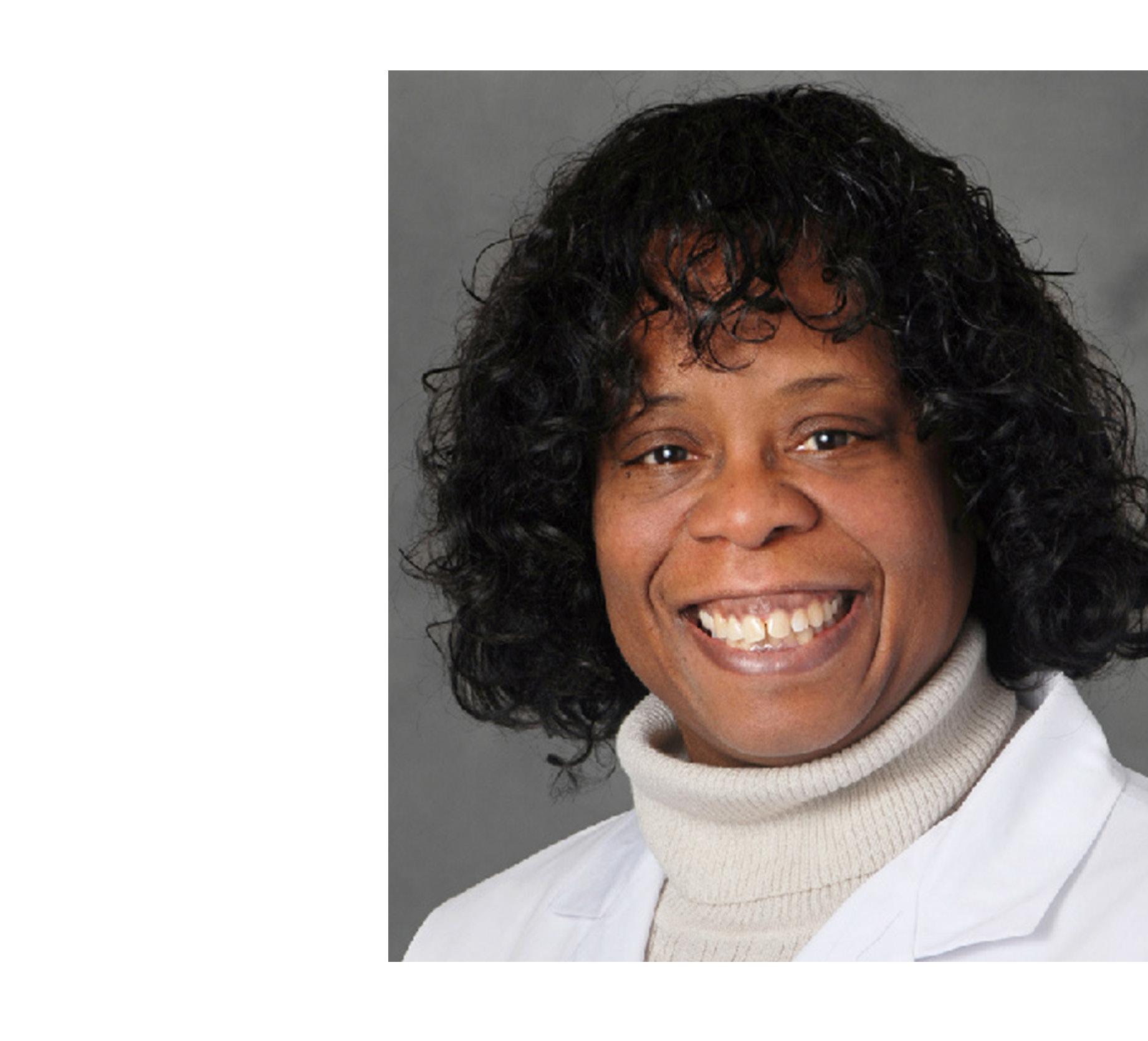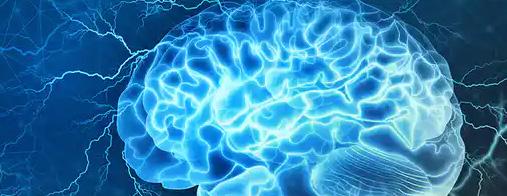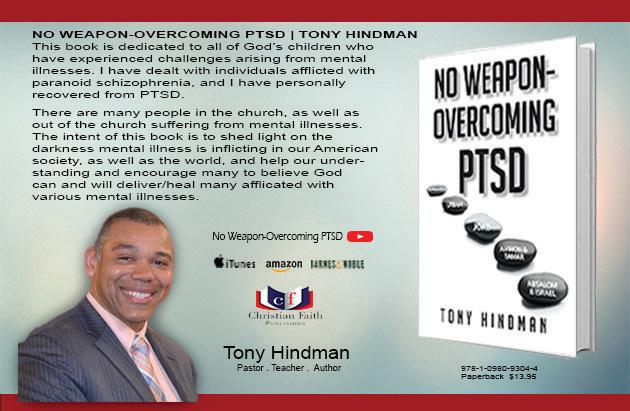
7 minute read
Alzheimer’s Disease
from January/February 2022 ~ The Christian Outlook
by The Pentecostal Assembles of The World - The Christian Outlook

By Dr. Vanessa Robinson
Advertisement
lzheimer’s is the most common cause of dementia, a general term for memory loss and other cognitive abilities severe enough to interfere with daily life.
Alzheimer’s disease accounts for 60-80% of dementia cases. Dementia is caused by damage to brain cells. This damage interferes with the ability of brain cells to communicate with each other. When this occurs thinking, behavior and feelings are affected. There is no one test to determine if someone has dementia. Alzheimer’s and other types of dementia are diagnosed based on medical history, physical examination, and laboratory tests. An addition are the characteristic changes in thinking and day-today function. Doctors can determine that a person has dementia with a high level of certainty based upon this information, but it’s harder to determine the exact type of dementia because the symptoms and brain changes of different dementias can overlap. There are some special considerations for African Americans: Alzheimer’s disease is more prevalent among African Americans than among whites — with estimates ranging from 14% to almost 100% higher. There is a greater familial risk of Alzheimer’s in African Americans; and genetic and environmental factors may work differently to cause Alzheimer’s disease in African Americans. Alzheimer’s is not a normal part of aging. The greatest known risk factor is increasing age, and the majority of people with Alzheimer’s are 65 and older. Alzheimer’s disease is considered to be younger-onset Alzheimer’s if it affects a person under 65. Younger-onset can also be referred to as early-onset Alzheimer’s. People with younger-onset Alzheimer’s can be in the early, middle, or late stage of the disease. The following are ten signs of Alzheimer’s Disease, but it is important to distinguish these from normal aging.
A1. MEMORY LOSS THAT DISRUPTS DAILY LIFE. One of the most common signs of Alzheimer’s disease, especially in the early stage, is forgetting recently learned information. Others include forgetting important dates or events, asking the same question over and over again, or increasingly needing to rely on memory aids (e.g., reminder notes or electronic devices) or family members for things the person used to handle on their own. Typical agerelated changes are sometimes forgetting names or appointments but remembering them later.
2. CHALLENGES IN PLANNING OR SOLVING PROBLEMS
Some people living with dementia may experience changes in their ability to develop and follow a plan or work with numbers. They may have trouble following a familiar recipe or keeping track of monthly bills. They may have difficulty concentrating and take much longer to do things than they did before. Typical age-related changes are making occasional errors when managing finances or household bills.
3. DIFFICULTY COMPLETING FAMILIAR TASKS.
People living with Alzheimer’s disease often find it hard to complete routine tasks. Sometimes they may have trouble driving to a familiar location, organizing a grocery list, or remembering the rules of a favorite game. A typical age-related change is occasionally needing help to use microwave settings or to record a TV show.
4. CONFUSION WITH TIME OR PLACE.
People living with Alzheimer’s can lose track of dates, seasons, and the passage of time. They may have trouble understanding something if it is not happening immediately. Sometimes they may forget where they are or how they got there. A typical agerelated change? Getting confused about the day of the week but figuring it out later.
5. TROUBLE UNDERSTANDING VISUAL IMAGES
AND SPATIAL RELATIONSHIPS.
For some people, vision problems are a sign of
Alzheimer’s. They may also have problems judging distance and determining color or contrast, causing issues with driving.
What’s a typical age-related change?
Vision changes related to cataracts.
6. NEW PROBLEMS WITH WORDS IN SPEAKING
OR WRITING
People living with Alzheimer’s may have trouble following or joining a conversation. They may stop in the middle of a conversation and have no idea how to continue or repeat themselves. They may struggle with vocabulary, have trouble naming a familiar object or use the wrong name. A typical age-related change is sometimes having trouble finding the right word.
7. MISPLACING THINGS AND LOSING THE ABILITY
TO RETRACE STEPS.
A person living with Alzheimer’s may put things in unusual places. They may lose things and be unable to go back over their steps to find them again. He or she may accuse others of stealing, especially as the disease progresses. A typical age-related change would be misplacing things from time to time and retracing steps to find them.
8. DECREASED OR POOR JUDGMENT
Individuals may experience changes in judgment or decision-making. For example, they may use poor judgment when dealing with money, or pay less attention to grooming or keeping themselves clean.
A typical age-related change is making a bad decision occasionally, like neglecting to change the oil in the car.
9. WITHDRAWAL FROM WORK OR SOCIAL ACTIVITIES.
A person living with Alzheimer’s may experience changes in the ability to hold or follow a conversation.
As a result, he or she may withdraw from hobbies, social activities, or other engagements. They may have trouble keeping up with a favorite team or activity. A typical age-related change? Sometimes feeling uninterested in family or social obligations.
10. CHANGES IN MOOD AND PERSONALITY.
Individuals living with Alzheimer’s may experience mood and personality changes. They may be easily upset at home, at work, with friends or when out of their comfort zone. A typical age-related change includes developing very specific ways of doing things and becoming irritable when a routine is disrupted.
Alzheimer’s disease has often been classified in stages, early, middle, and late. The following are characteristic symptoms of each stage:
Early symptoms include:
• Memory loss • Misplacing items • Forgetting the names of places and objects • Repeating themselves regularly, such as asking the same question several times • Becoming less flexible and more hesitant to try new things
Middle-stage symptoms include:
• Increasing confusion and disorientation • Obsessive, repetitive, or impulsive behavior • Delusions (believing things that are untrue) • Problems with speech or language (aphasia) • Disturbed sleep • Changes in mood, such as frequent mood swings, depression and feeling increasingly anxious, frustrated, or agitated • Difficulty in performing spatial tasks, such as judging distances • Loss of smell
Later symptoms include:
• Difficulty in changing position or moving around without assistance • Considerable weight loss – although some people eat too much and put on weight • Gradual loss of speech • Significant problems with short and long-term memory Although there is no cure for Alzheimer’s disease, risk factors modification, preventative measures such as diet and exercise can impact the course of the illness.

ABOUT THE AUTHOR
Dr. Vanessa L. Robinson is a native Detroiter who was educated in the Detroit Public School system. She earned a Bachelor of Science Degree in Zoology and Doctor of Medicine Degree from the University of Michigan in Ann Arbor, Michigan. After graduation from Medical School she completed a Residency in Internal Medicine at Henry Ford Hospital, Detroit, Michigan. She currently is a Senior Staff Physician in the Department of Internal Medicine with a very thriving practice. Dr. Robinson attends Greater Grace Temple in Detroit, MI where Bishop Charles H. Ellis III is pastor.


11 1
5 2
9 3
12
14
17 18 6 7
10 8
15 16 4
13
19
ACROSS
5 Which gospel records the fewest of the miracles performed by Jesus? 6 Who was responsible for saving
Jeremiah from the dungeon? 9 Which battle item mentioned in
Ephesians is used as an illustration of faith? 10 Which of Leah's sons brought her mandrakes? 11 Who was the father of Saul? 12 Naaman the leper was commander of which army? 15 After the exile, the Israelites returned and started to rebuild the temple in Jerusalem, but which other prophet along with Zechariah was sent to encourage the completion of the partly built temple? 17 Who was threatening to invade
Israel during the time of Micah's prophesy? 19 Melchizidek was a high priest, but also king of where? DOWN
1 Complete the Bible reference: Now faith is the substance of things hoped for, the evidence of things not seen. (Hebrews Ch 11 vs __) 2 Of which animal were the kings of
Israel told not to have lots? 3 Butler / When Joseph was in prison, whose dream did he correctly interpret to mean he would be restored to his job? 4 How many times did Paul say he was beaten with a rod? 7 Which tribe was Saul from? 8 Who was Noah's father? 13 What is described as a "tree of life to them that lay hold upon her"? 14 By which brook did Jacob wrestle with the angel? 16 Fill in the missing name: And
Nadab and Abihu, the sons of _____, took either of them his censer and put fire therein 18 Who thought that the gift of God could be purchased with money?
WORD BANK: AARON, ASSYRIA, BENJAMIN, EBEDMELECH, HAGGAI, HORSES, JABBOK, JOHN, KISH, LAMECH, ONE, PSALMS, REUBEN, SALEM, SHIELD, SIMON, SYRIAN, THREE, WISDOM










